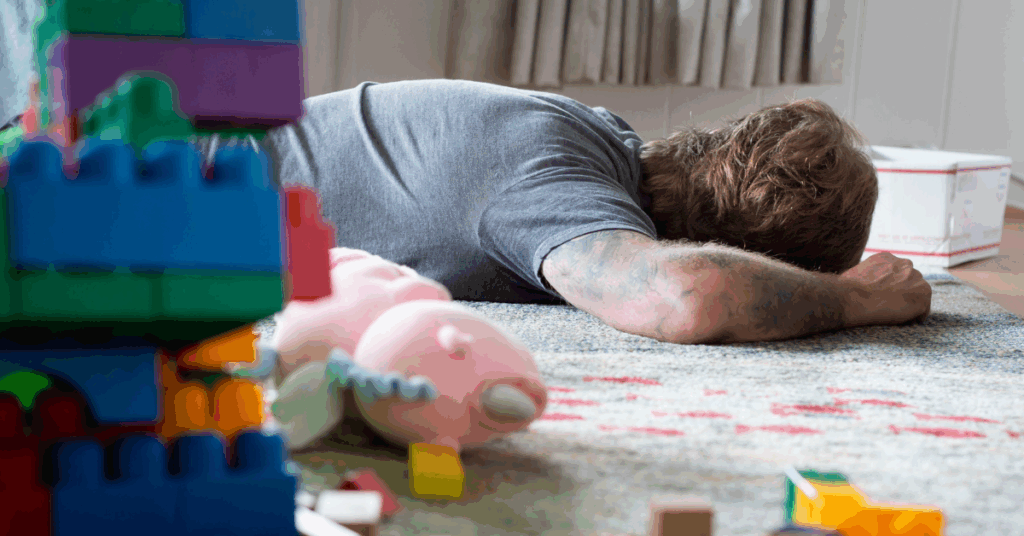That’s not rocket science that parents play a widely important role in their children’s lives. Of course, the environment (education, culture, politics, etc.) is crucial as well. But. Did you know that good parenting can actually reduce the effects of disadvantaged circumstances by roughly 50%? So good parenting really matters! And, according to the biggest human development study, being a good parent is easier than you think.
Lessons from the longest study on human development
Let’s talk about this incredible study on human development, which I stumbled upon after watching a captivating TED talk by Helen Pearson. Her book, The Life Project (check out our notes), delves into the extensive research conducted in the UK over the past seventy years. Serious stuff, no jokes here.
Back in March 1946, a group of scientists began tracking thousands of children born within the same week. Little did they know that this would become the most enduring study on human development in history, spanning five generations of children. These cohort studies, which encompassed over 70,000 individuals, resulted in a staggering 5,000 journal articles and 40 books covering various fields like social sciences, medicine, epidemiology, genetics, and more.
Now, here’s a key insight from the book: these longitudinal studies revealed that your social class has a profound influence throughout your entire life. If you’re born into a poor family, the prospects for a long, healthy, and successful life aren’t exactly promising. They referred to these disadvantaged children as “born to fail.” Harsh words, but unfortunately, that was the reality.
Beating the odds – what helped disadvantaged children to achieve success in adulthood
But here’s the intriguing part. Despite the odds stacked against them, some individuals from disadvantaged backgrounds managed to achieve remarkable success. Take Howard Schultz, the founder of Starbucks, for instance. He grew up in a housing complex for the poor, and it didn’t stop him from building a coffee empire. Naturally, the scientists behind the study were curious about what factors helped these disadvantaged children like him thrive later in life.
The researchers carefully selected 386 individuals from the cohort who were born into the most challenging circumstances and identified 83 “achievers” among them – those who managed to thrive in life despite their rough start. And here’s what they discovered: those who possessed internal motivation to create a better life for themselves, supported by their parents’ high expectations for their education and future, experienced significant progress in life.
Meanwhile, in 2006, economist Blanden conducted a similar study on one of the cohorts. His findings revealed that children whose parents read to them regularly at the age of five and showed interest in their education at ten were far less likely to be living in poverty by the time they reached thirty.
Multiple other studies reinforced these findings, demonstrating that whatever parents did to create a positive learning environment at home had a greater impact on their children’s intellectual and social development than their job, education, or income:
“Reading with a child, teaching them songs and nursery rhymes, painting and drawing, showing them the alphabet and numbers, visiting the library, taking children on trips and visits – all of these were associated with higher intellectual, social and behavioural scores as the children grew up.”
But that’s not all. Talking to your kids about what they’re learning at school, supporting them with their homework, and expressing your ambitions for their future all contribute to improved academic achievement.
The studies of the millennium cohort (which is the last cohort so far) showed that talking and listening to your child, responding to them warmly, institutional regular mealtimes and bedtimes and authoritative discipline are all correlated with a brighter future.
Remember wise parenting? Here you go – scientifically proven.
5 secrets of good parenting
So to wrap it all up, here are five science (and parents) proved things you could do today to help your children flourish in life:
- Create a great learning environment for your child – read books together, go on trips, visit museums, support them with homework (but don’t do it for them!)
- Express your ambitions towards their future – believe in their potential, show them that you care about what they’ll do in life and that you are committed to supporting their career choice.
- Communicate with your children – talk about what’s going on in their lives now, give feedback when needed and maybe most importantly – listen to them.
- Respond warmly to them – love unconditionally, talk friendly, show them your love…whatever happens in life!
- Set up the routine for regular mealtimes and bedtimes – energy management is the foundation of a healthy and successful life. Moreover, regular family meals are associated with improved mental health, stronger family bonds and…better grades! Same with sleep hygiene. And not only for kids.
Now, all of this might seem like common sense to most parents. Unfortunately, in the chaos of modern life, these fundamental yet crucial parenting behaviors often get overshadowed. Sometimes, having a casual conversation with your child can bring more benefits than a trip to a fancy play center.
So here’s the bottom line: good parenting matters – a lot – for children’s bright future. And the good news is, being a good parent isn’t rocket science.
Question for you for today – what do you already do from the list above and what can you start doing today?
Loads of love,
Irina & Dawid



